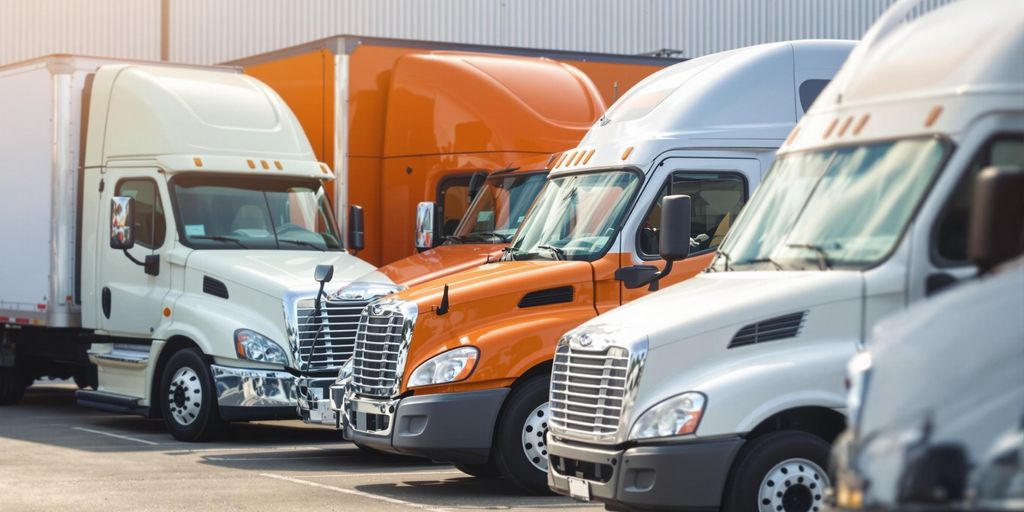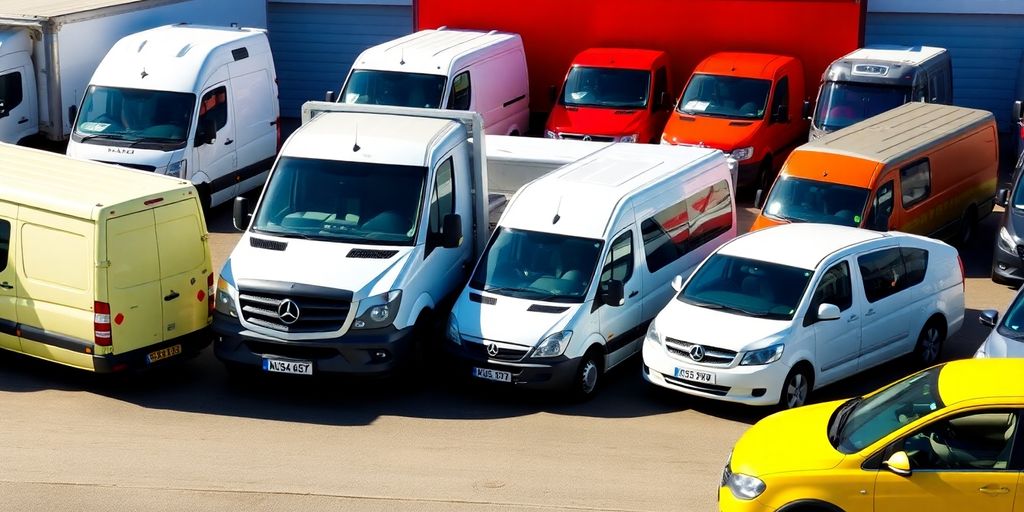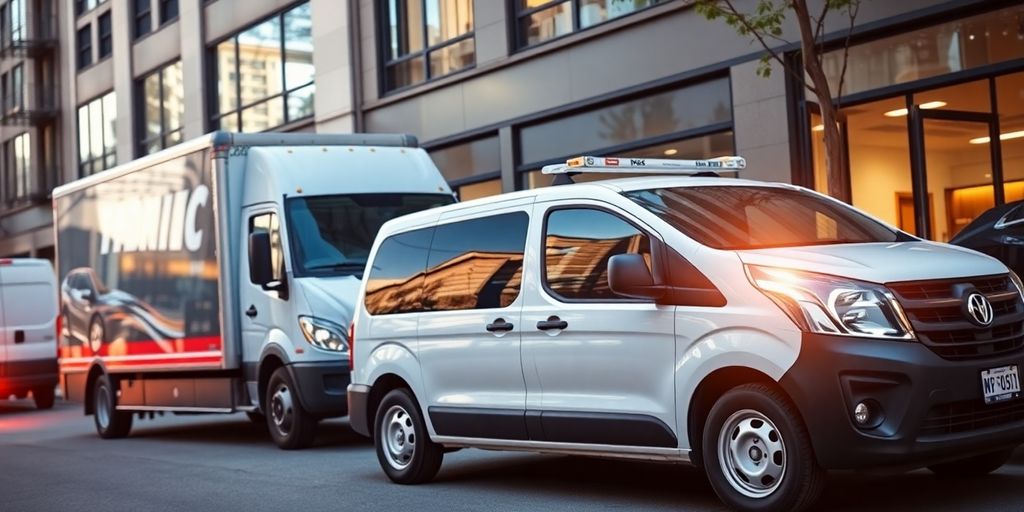What are differences in Commercial Auto Insurance Coverage?

Trying to figure out commercial auto insurance? It's like trying to assemble IKEA furniture without instructions. You know it's important, but the details can get confusing. So, let's break it down. Commercial auto insurance is a must-have if you use vehicles for work. It's different from personal auto insurance, which is more for everyday drivers. Commercial policies cover work vehicles and offer protection in case of accidents or damage. This guide will help you understand the ins and outs of commercial auto insurance, from what it covers to how it can save your business from financial headaches.
Key Takeaways
- Commercial auto insurance is essential for businesses using vehicles for work purposes.
- It differs from personal auto insurance by covering more complex risks and higher claims.
- Policies usually include liability, collision, and coverage for uninsured drivers.
- Understanding what's not covered is crucial to avoid unexpected costs.
- Choosing the right coverage can save your business money and protect your assets.
Understanding The Wacky World Of Commercial Auto Insurance

What Even Is Commercial Auto Insurance?
Alright, let's get this straight. Commercial auto insurance is like that extra-large umbrella you need when it's pouring cats and dogs, but for your business vehicles. It covers cars, trucks, vans, and any other wheeled contraption you use for work. Think of it as a superhero cape for your business on wheels. It protects you against financial losses from accidents, theft, and other mishaps.
Why Is It Different From Personal Auto?
You might be thinking, "Isn't all car insurance the same?" Well, not quite. Commercial auto insurance is the big brother of personal auto insurance. It's got more muscle because it covers higher risks. For instance, if your business owns the vehicle, you need this beefier policy. It covers your employees when they're out on business errands, even if they stop for a coffee run. Plus, it offers higher policy limits to keep your business assets safe from lawsuits and other liabilities.
The Joys Of Higher Premiums
Now, here comes the fun part—higher premiums! Yep, you read that right. Commercial auto insurance tends to be pricier than personal auto insurance. Why? Because businesses typically face more risks. Imagine a delivery truck zooming around town all day versus your grandma's Sunday drive to bingo. The truck is more likely to get into a fender bender. But don't fret, these premiums are the price of peace of mind knowing your business is covered.
"Commercial auto insurance isn't just a policy; it's a business essential. Think of it as a wise investment in your company's future. A bit pricey, perhaps, but worth every penny when it saves your bacon."
So, next time you're pondering over your business expenses, remember that commercial auto insurance is like commercial property insurance—it's essential for keeping your operations running smoothly.
The Many Faces Of Commercial Auto Coverage
Liability Coverage: Because Accidents Happen
Alright, so you’re cruising down the highway, minding your own business, when suddenly—bam!—a wild accident appears. This is where liability coverage comes in. Liability coverage is like your financial bodyguard when you accidentally cause harm to someone else or their property. It picks up the tab for their medical expenses and property damage, so you’re not left paying out of pocket. Think of it as your "Oops, I didn’t mean to" insurance.
- Covers bodily injuries to others
- Pays for property damage you cause
- Helps with legal fees if you’re sued
Collision Coverage: Not Just For Demolition Derbies
Ever feel like your vehicle has a magnet for other cars? Collision coverage is your best friend when your vehicle decides to play bumper cars, whether it’s your fault or not. Whether you hit another car, a tree, or the infamous shopping cart, this coverage helps pay for the repairs. If your vehicle is financed or leased, your lender will probably insist you have this.
- Pays for damage to your vehicle from accidents
- Covers rollovers, even if you’re the only one involved
- Required by lenders for financed vehicles
Comprehensive Coverage: For When Life Throws You Curveballs
Comprehensive coverage is like the Swiss Army knife of auto insurance. It covers everything that’s not a collision—think theft, vandalism, or even a rogue deer deciding to cross your path. If Mother Nature decides to throw a tantrum and hailstones the size of golf balls start falling, you’ll be glad to have this.
- Covers theft, fire, and vandalism
- Protects against natural disasters like floods and hail
- Includes damage from animals, like that deer or your neighbor’s overzealous cat
Don’t forget, even the best drivers can’t predict when a surprise will jump out at them. Having the right coverage is like having a safety net for those unexpected moments.
The Fine Print: What’s Not Covered?
The Exclusions That Will Make You Facepalm
So, you think your commercial auto insurance has got your back no matter what? Think again, my friend. Insurance companies are notorious for sneaking in exclusions that can leave you shaking your head. Here are some common exclusions that might make you want to scream:
- Intentional Damage: If you or your employee purposely wrecks the company van, don’t expect the insurance fairy to sprinkle any magic on your claim.
- Wear and Tear: Your trusty old truck falling apart from age? That's on you, buddy. Insurance only covers unexpected damages, not the inevitable march of time.
- War and Nuclear Events: Because, you know, if your delivery van gets caught in a nuclear explosion, you probably have bigger problems than filing a claim.
Why Your Pet Iguana Isn’t Covered
Ever thought about taking your pet iguana on a delivery run? Well, don’t. Commercial auto insurance is all about business, not your exotic pets. So, if Iggy decides to take a joyride and gets into a fender bender, you’re on your own. Here’s why:
- Non-Business Use: Most policies are strictly for business-related activities. Your iguana’s escapades don’t count.
- Exotic Pets Clause: Even if you think Iggy is part of the team, insurance companies don’t share your sentiment. Pets are usually excluded from coverage.
The Dangers Of Using Your Work Truck For Taco Runs
Sure, your work truck is perfect for hauling heavy loads, but using it for taco runs? That’s a different story. Mixing business with pleasure can lead to some sticky insurance situations.
- Personal Errands: Most policies won’t cover damages if you’re using the vehicle for personal errands, like grabbing tacos.
- Unauthorized Use: If you’re caught using the truck for non-business activities, your claim could be denied faster than you can say "extra guac."
- Policy Breach: Repeatedly using your vehicle for personal reasons might breach your policy, leading to higher premiums or cancellation.
Remember: Commercial auto insurance is designed to protect your business assets, not your lunch plans. Always check what’s covered before hitting the drive-thru.
For more on how commercial vehicle insurance protects your business, consider the specifics of your policy. Understanding these nuances can save you from unexpected financial surprises.
Claiming Your Way To Happiness
How To Navigate The Claims Process Without Losing Your Mind
Filing a claim can feel like navigating a maze blindfolded, but it doesn't have to be a total nightmare. Here are some steps to keep your sanity intact:
- Gather Your Evidence: Collect all necessary documents, like photos of the damage, police reports, and repair estimates. The more proof you have, the smoother the process.
- Contact Your Insurance Provider: Reach out to your insurer as soon as possible. They'll guide you on the next steps and what forms you need to fill out.
- Stay Organized: Keep a dedicated folder for all your claim-related paperwork. This way, you won't be scrambling for that one missing piece of paper.
- Follow Up Religiously: Be proactive in following up with your insurance company. Don't wait for them to get back to you; sometimes a little nudge goes a long way.
"In challenging times, it's essential to prioritize joy and take charge of our own happiness."
The Role Of Your Dedicated Claims Specialist
Having a dedicated claims specialist is like having a GPS for your claims journey. They're there to help you understand the process and ensure things go as smoothly as possible. Here's what they do:
- Explain the Process: They break down the steps and jargon, making everything less confusing.
- Advocate for You: They work on your behalf to make sure your claim is handled fairly and efficiently.
- Provide Updates: Regular updates keep you informed about the status of your claim, so you're not left in the dark.
Tips For A Smooth Claims Experience
Want to sail through the claims process? Here are a few tips to help:
- Be Honest and Accurate: Provide truthful and precise information to avoid any hiccups.
- Keep Communication Open: Stay in touch with your claims specialist and respond promptly to any requests.
- Understand Your Policy: Know what's covered and what's not, so there are no surprises.
By following these tips and working closely with your claims specialist, you can turn the daunting process of filing a claim into a manageable task. Remember, committing to hope and leading with purpose can make even the toughest situations a bit brighter.
Payment Plans That Won’t Break The Bank

Flexible Payment Options: Because Who Has Cash?
Alright, let's face it, not everyone has a stash of cash under their mattress ready to pay off insurance premiums in one go. That's where flexible payment plans come in handy. You can spread the cost over time, making it easier on your wallet. Here’s how you can make those payments as smooth as butter:
- Monthly Installments: Pay your premium in smaller, manageable chunks each month.
- Quarterly Payments: Opt to pay every three months if monthly feels too frequent.
- Bi-Annual Plans: Split your payments into two, paying twice a year.
"With flexible payment options, you can keep your business protected without feeling like you’ve just been mugged by your own insurance policy."
The Art Of Budgeting For Commercial Auto Insurance
Budgeting for insurance is like trying to diet while working in a bakery—temptation to overspend is everywhere! But with a bit of planning, you can keep your finances in check:
- Know Your Costs: Understand what your insurance includes and the total cost.
- Set Aside Funds: Treat your insurance payments like a monthly utility bill.
- Review Annually: Make it a habit to review your policy each year to adjust for any changes in your business.
Why You Shouldn’t Just Pay It All At Once
Sure, paying everything upfront might sound like a good idea—one less thing to worry about, right? But here’s why it might not be the best move:
- Cash Flow Matters: Keeping cash on hand for unexpected expenses is crucial.
- Interest-Free Flexibility: Many insurers offer interest-free payment plans, so why not take advantage?
- Avoid Overpayment: If your business changes, you might end up overpaying for coverage you no longer need.
With commercial auto insurance, you get the flexibility you need to manage your payments without breaking the bank. So go ahead, keep that cash for something fun—like emergency coffee runs or surprise office pizza parties!
The Perks Of Bundling Your Policies
Why You Should Consider A Business Owner Policy
Alright, let's talk about bundling your insurance policies. Imagine you're at a buffet, and instead of picking individual dishes, you get a whole platter that covers everything you need. That's what a Business Owner Policy (BOP) is like for your business. It's a neat package that combines multiple types of insurance into one, saving you time and hassle. Think of it as the Netflix of insurance—everything you want in one place!
When you opt for a BOP, you're not just getting a single type of coverage. Nope, you're snagging a combo deal that usually includes general liability and property insurance. This is perfect for small businesses because it covers the basics without having to juggle multiple policies.
The Benefits Of Combining Commercial Auto With Other Coverages
Now, let's dive into the joys of combining your commercial auto insurance with other types. It's like getting fries with your burger—why wouldn't you? Bundling can often lead to discounts, which means more money in your pocket. Plus, it's way easier to manage when everything's under one roof.
Here's what you get when you bundle:
- Convenience: One bill, one renewal date, and less paperwork. It's like having a personal assistant for your insurance.
- Savings: Insurance companies love it when you bundle. They might throw in a discount just to keep you happy.
- Comprehensive Coverage: From vehicles to liability, you get a broad shield that covers most of your business needs.
How To Save Money While Protecting Your Assets
Saving money while keeping your assets safe? Yes, please! Bundling isn't just about convenience—it's a smart financial move. When you combine policies, you're often eligible for a discount. It's like buying in bulk at Costco; you get more for less.
- Step 1: Assess what coverages you need. Don't bundle just for the sake of it—make sure it's beneficial.
- Step 2: Talk to your insurance provider about bundling options. They might have special offers you didn't even know existed.
- Step 3: Keep an eye on your policies. Make sure they still fit your business as it grows and changes.
Bundling your insurance is like finding a hidden treasure chest in your backyard. You get all these benefits without the headache of managing multiple policies. Why make life harder than it needs to be?
Choosing The Right Coverage For Your Business

Assessing Your Business Needs Like A Pro
Alright, folks, let’s get down to the nitty-gritty of picking the right coverage for your business. First off, you need to assess what your business actually needs. Is your company a small coffee shop or a massive construction firm? The risks and coverage will vary greatly. Here’s a quick checklist to get you started:
- Identify Your Risks: Make a list of potential risks. Think about everything from natural disasters to someone slipping on a wet floor.
- Evaluate Your Assets: What do you own that needs protection? This includes physical assets like buildings and equipment, as well as intellectual property.
- Consider Your Budget: How much can you realistically spend on insurance without breaking the bank?
The Importance Of Tailored Coverage Options
You wouldn’t wear a one-size-fits-all suit to a fancy dinner, so why settle for generic insurance? Tailored coverage is key. When looking for insurance, make sure it’s customized to fit your specific business needs. Here’s why it matters:
- Specific Risks: Every business has unique risks. Tailored coverage ensures those risks are covered.
- Cost Efficiency: You’re not paying for coverage you don’t need. It’s like ordering a burger without the pickles if you hate pickles.
- Peace of Mind: Knowing your business is adequately covered can help you sleep at night.
How To Avoid Common Coverage Mistakes
Even the best of us can trip up when it comes to insurance. Here are some common blunders and how to dodge them:
- Underinsuring Your Business: Don’t skimp on coverage just to save a few bucks. It might cost you more in the long run.
- Ignoring Policy Exclusions: Always read the fine print. You don’t want to find out after an incident that you’re not covered.
- Not Updating Your Policy: Your business evolves, so should your insurance. Update your policy to reflect new assets or changes in operation.
Remember, choosing the right insurance coverage isn’t just about checking a box; it’s about protecting your livelihood. Make sure you’re informed and proactive in selecting the best options for your business.
For more insights on how to protect your business assets and reputation, check out this guide. It’s packed with tips to help you make informed decisions about your business insurance.
When it comes to protecting your business, picking the right insurance is key. Don't leave it to chance! Visit our website to learn more about how we can help you find the best coverage tailored to your needs. Your business deserves the best protection!
Conclusion
So, there you have it, folks! Commercial auto insurance isn't just a fancy term to throw around at business meetings. It's like the superhero cape for your business vehicles, ready to swoop in and save the day when things go sideways. Whether you're hauling goods across town or just trying to keep your delivery van from becoming a bumper car, having the right coverage is key. Remember, it's not just about ticking boxes; it's about making sure your business can keep rolling, even when life throws a flat tire your way. So, buckle up, choose wisely, and let your insurance do the heavy lifting. Who knew insurance could be this exciting, right?!
Frequently Asked Questions
What is commercial auto insurance?
Commercial auto insurance is a type of policy that covers vehicles used for business purposes. It protects businesses from financial loss due to accidents, theft, or damage involving company vehicles.
How is commercial auto insurance different from personal auto insurance?
Commercial auto insurance covers vehicles owned by a business and usually has higher coverage limits. It also includes coverage for multiple drivers and vehicles used for work, unlike personal auto insurance which is for individual use.
What does commercial auto insurance typically cover?
It usually covers liability for injuries and property damage, collision and comprehensive damage, medical payments, and uninsured motorist coverage. It can also cover vehicles rented or borrowed for business use.
How much does commercial auto insurance cost?
The cost varies based on factors like the type of vehicles, coverage limits, driving records of employees, and the nature of the business. It's best to get a personalized quote for accurate pricing.
Can I bundle commercial auto insurance with other policies?
Yes, many providers offer bundling options, which can include commercial auto insurance with other business policies like general liability or property insurance, often at a discounted rate.
What should I do if I need to make a claim?
If you need to make a claim, contact your insurance provider as soon as possible. They will assign a dedicated claims specialist to guide you through the process and help resolve your claim efficiently.
